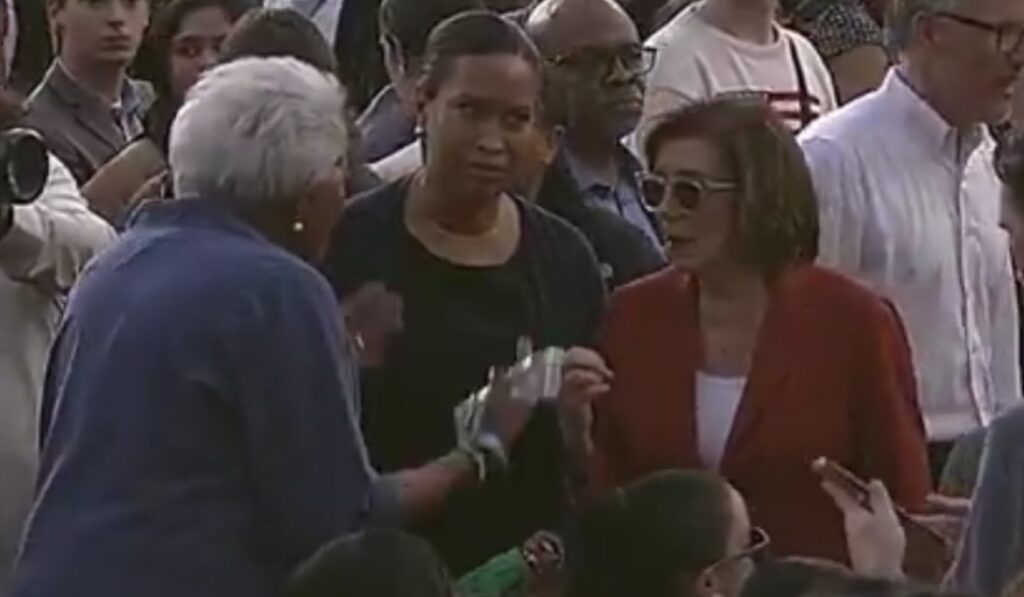The fallout from Kamala Harris’s defeat in the 2024 presidential election has left the Democratic Party in a state of turmoil. The concession speech delivered by Harris at Howard University was a brief but somber affair, lasting just twelve minutes. The atmosphere was charged, and the disappointment was palpable among her supporters, many of whom had invested their hopes in her candidacy. Instead of directly addressing her supporters after the results were announced, Harris had her campaign co-chair, Cedric Richmond, inform the crowd to disperse. This delay in her public address only added to the frustration felt by her base, who had eagerly awaited her words of reassurance.
At the heart of this moment of despair for the Democrats was a tense interaction between two prominent party figures, former House Speaker Nancy Pelosi and former acting DNC Chairwoman Donna Brazile. Cameras captured the two engaged in a heated discussion, which provided a vivid illustration of the discontent brewing within the party ranks. While the specifics of their argument remain unclear, the juxtaposition of their visible frustration against the backdrop of Harris’s concession speech highlighted the underlying cracks in the Democratic establishment, struggling to regroup after a bitter defeat.
Emotions ran high during the event, particularly for Pelosi, who was seen visibly shaken. Witnesses noted that the former Speaker appeared teary-eyed and somber as she processed the implications of the party’s loss. This defeat was not just a setback for Harris but also represented a significant blow to the broader Democratic agenda. The contention between Pelosi and Brazile seemingly underscored the internal disagreements regarding the party’s strategy and direction moving forward. With the 2024 election results, the Democrats faced profound questions about their future and potential unity.
As the camera captured Pelosi and Brazile’s exchange, it also reflected a larger narrative of a party grappling with its identity and electoral strategy. The loss of Harris, who was once seen as a rising star within the party, has led to finger-pointing and calls for accountability among fellow Democrats. In the wake of Harris’s defeat, many party members questioned the effectiveness of their campaigns and the messages they portrayed to the electorate. This internal strife became emblematic of a broader sense of anxiety that permeated the Democratic Party as it contemplated its next steps.
The events at Howard University did not merely signify a concession but also served as a potent reminder of the challenges facing Democrats in a rapidly changing political landscape. The party, while boasting a diverse coalition, must now confront the realities of its fragmentation and the necessity for reconciliation among various factions to maintain relevance and viability in future elections. With prominent figures like Pelosi and Brazile openly expressing their frustrations, the call for a reevaluation of strategies is evident.
In this moment of reflection and discord, the Democratic Party stands at a crossroads. The aftermath of Kamala Harris’s defeat highlights the urgent need for introspection and unity among party members. As they navigate through these tumultuous waters, it is clear that the path forward will require a concerted effort to address the fissures that have emerged, ensuring that the party can rebuild trust and cohesion among its ranks, ultimately moving towards a more unified front for upcoming electoral challenges.

